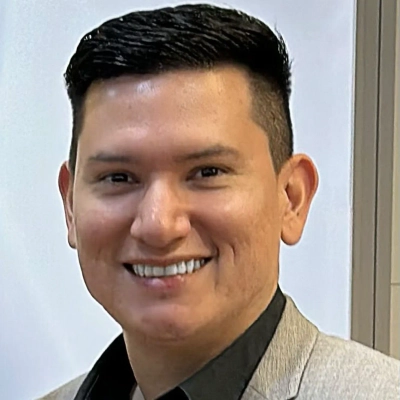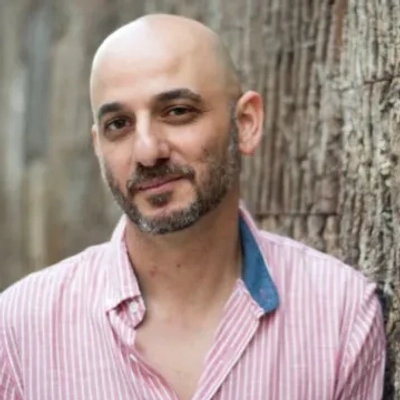8 Habits that Help People Reach their Financial Goals
Achieving financial goals can seem daunting, but experts have identified key habits that can pave the way to success. This article delves into the strategies employed by those who have mastered their finances, offering actionable insights for readers. From daily tracking to long-term planning, these expert-backed habits could be the key to unlocking your financial potential.
- Focus on Small, Controllable Financial Habits
- Plan in Five-Year Increments
- Live Below Means and Invest Wisely
- Track Every Euro Daily
- Automate Savings for Consistent Growth
- Review Cost of Goods Sold Daily
- Conduct Monthly Financial Reviews
- Implement 50/30/20 Budgeting Rule
Focus on Small, Controllable Financial Habits
If I had to pick one habit that really transformed how I reached my financial goals, it would be learning to live with less pressure to constantly chase "more." For a long time, I thought progress meant hitting big milestones: the nice car, the dream trips, the picture-perfect bucket list. But what I didn't realize back then is that setting goals like that can sometimes set you up for failure. Every time I checked one thing off, I felt like I was already behind on the next. It became this endless treadmill.
What actually changed things for me was slowing down and being brutally honest about what mattered to me on a day-to-day basis. Instead of obsessing over the big "someday" wins, I started focusing on smaller habits I could actually control. Things like cooking more meals at home, cutting down on subscriptions I didn't use, and paying closer attention to where my money was going every week. Nothing glamorous, but it stuck.
The habit that tied all of this together was building a weekly money check-in. Every Sunday, I'd sit down for 20-30 minutes, look over my spending, and ask myself two questions: Did I spend on things that actually made me happy? And did I save enough to feel secure? At first, it felt tedious, but eventually it became automatic.
Cutting out wasteful spending gave me more room to save. Saving regularly gave me peace of mind. And that peace of mind made me less likely to stress-spend in the first place. It turned into this positive cycle, all from one small, consistent habit. If you can find that one thing that keeps you grounded, the financial goals start to feel a lot less impossible.
Plan in Five-Year Increments
The single habit that has been most transformative for me is working backwards in five-year increments. Instead of only thinking about a distant retirement date, I ask, "Where do I want to be five years from now?" Then I break it down into milestones—by 40, by 45, by 50—and so on. That way, I'm not staring at one giant, intimidating goal, but a series of steps that feel realistic and measurable.
I've built this into my own life by reviewing progress every year and asking, "Am I where I wanted to be at this stage?" If not, I adjust things like saving, investing, or spending until I'm back on track. This check-in has kept me from drifting too far off course and has given me confidence that I'm moving in the right direction.
I do the same thing with my clients. Most people have big goals but aren't sure how to connect today's decisions with that future. When we map out their life in five-year increments, the process clicks—it becomes easier to see how setting aside a little more now or making a smarter investment decision today can put them exactly where they want to be down the road. That rhythm of setting milestones and living year by year toward them has been the backbone of reaching financial goals.

Live Below Means and Invest Wisely
The single most transformative habit in reaching my financial goals has been consistently living below my means and channeling that margin into diversified investments.
Early in my career, I made the conscious choice not to let higher earnings automatically translate into higher expenses. Instead, I maintained a modest lifestyle and treated any income growth as an opportunity to strengthen my long-term financial foundation.
What made this habit stick was pairing discipline with purpose. Rather than just saving cash in an account, I directed those reserves into assets that would work for me - most notably gold and precious metals. This diversification not only helped protect my wealth from inflation and market swings, but it also gave me confidence that my money was building real resilience. It became less about resisting short-term temptations and more about staying focused on the bigger picture.
Incorporating the habit was a matter of building small routines. Every time my income increased, I decided on a fixed percentage to invest before I allowed myself to spend more. Automating contributions and allocating part of them into precious metals made it easier to follow through. Over time, the compounding effect of both discipline and diversification has been transformative, giving me stability, growth, and peace of mind that I wouldn't trade for anything.

Track Every Euro Daily
Every euro needs to be tracked. I developed a habit of daily account review, which became the key factor that transformed my financial situation. I check my cash flow through the banking app to identify any unexpected charges. The process of tracking your money for several months develops your ability to detect both subscription waste and hidden financial losses. A single glance at my financial data helps me understand whether our client payments were low for the week or if we spent too much on software.
I established this habit by linking it to my daily routine of getting my morning espresso at the local cafe. I visit the same table at my local cafe to enjoy my flat white coffee while checking my financial numbers for five minutes. The process of staying financially aware does not require budgeting spreadsheets but rather maintaining constant awareness of your financial situation.
Automate Savings for Consistent Growth
Automating My Savings
We have everything auto-drafting these days: our streaming services, our utilities, our mortgage, our auto-loans, and even the apps on our phones. However, a majority of Americans don't have their savings automated.
When I realized that a majority of Americans are in debt due to automatic spending, I understood that they could reach their goals if they used that same strategy towards automatic savings.
You can't spend what you can't see.
The way I incorporated it into my routine was by setting up auto-drafts from my bank to my different accounts.
The goal is to reduce the number of friction points in saving.
The reason we pay our streaming services faithfully for years is because we don't have to make that decision every month.
There was a time when the bill came, and if money was low, we had to decide if we would continue with the program or call and cancel because it was causing a strain on our lives.
Now that friction point is gone because it is paid without us thinking about it.
The same principle applies to our savings. If we have to look at our account after paying all of our bills, going out to eat, and spending time with friends, it's going to be hard to take money and save when the balance is low.
So by setting automatic transfers as the priorities, I couldn't spend what I couldn't see. That made my savings consistent, and I saw instant growth.
Review Cost of Goods Sold Daily
In the early days of running a business, your financial goals are often just a vague idea. You're so focused on getting orders out and bringing in new business that you're not looking at the numbers. My spending was reactive, and my financial goals were not being met.
The single habit that has been most transformative for me was to review our "Cost of Goods Sold" every single morning. It wasn't a monthly report; it was a daily habit. The first thing I would do when I got to my desk was to look at a simple report that showed me my cost of goods sold for the day before. The report also showed me my marketing spend for that day.
This simple habit forced me to think differently. From an operations standpoint, I was constantly looking for ways to reduce my costs. I'd ask my team, "Where can we be more efficient today?" From a marketing standpoint, I was constantly looking for ways to improve my return on investment. This simple report connected the two in my mind. I couldn't just spend money on marketing; I had to make sure it was having a direct impact on our profitability.
The result is that I went from being a person who spent money to a person who invested it. My business is now more profitable, and my financial goals are being met. I now see every single decision, both big and small, through a financial lens. My advice is that you have to stop looking at your financial goals as a distant aspiration. You have to look at them every single day. The fastest way to reach a goal is to have a simple, daily habit that keeps you on track.

Conduct Monthly Financial Reviews
The habit that made the greatest difference was treating monthly financial reviews as non-negotiable, just like patient appointments. Instead of waiting for quarterly reports or reacting to issues as they appeared, we set aside time every month to track income, expenses, and upcoming obligations. At first, the process felt repetitive, but consistency revealed patterns that were invisible on a larger timeline—seasonal fluctuations, service lines with higher returns, and small inefficiencies that added up.
We incorporated the habit by assigning clear ownership. A designated team member gathered the numbers, and leadership committed to reviewing them on the same day each month. This discipline turned financial oversight from a reactive task into a proactive guide for decision-making. The most important lesson is that clarity compounds. Small, steady adjustments made month after month did more to move us toward stability and growth than any single large financial strategy ever could.

Implement 50/30/20 Budgeting Rule
The single most transformative habit in my financial journey has been implementing the 50/30/20 budgeting rule, which helped me gain real clarity on where my money was going. I started by simply tracking all my expenses for a month, then gradually adjusted my spending to fit the framework of 50% on necessities, 30% on wants, and 20% on savings. This consistent practice completely changed my relationship with money because I finally had a practical system rather than just vague financial goals. Over time, it became second nature and laid the foundation for all my financial success.





